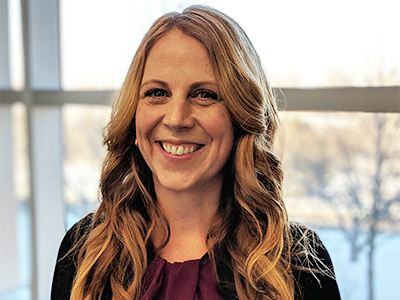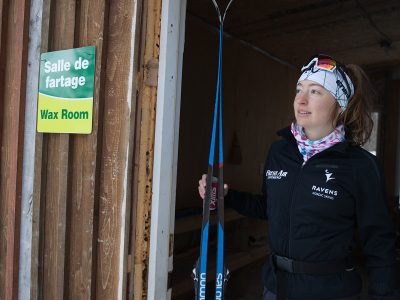By Jane Van den Dries
Photos by Jane Van den Dries
The Carleton University community engaged with a panel of experts on the topic of internationalization at a Sept. 9, 2019 event to support strategic planning.
The event, called “A Global Perspective on Universities,” followed last week’s official launch of the strategic planning process and was the second event in the Strategic Planning Speaker Series, which is intended to prompt the Carleton community to think strategically about significant topics.
“Thank you for caring about how this important theme of internationalization fits into our strategic plan,” said Carleton President Benoit-Antoine Bacon.
“International recruitment, student mobility in both directions, international research and impact, as well as the international feel of our own campus – so much to consider as we plan for our future in an increasingly global world.”
“Taking a global perspective on universities is essential in today’s environment,” said Deputy Provost (Academic Operations and Planning), Lorraine Dyke, who is serving as one of four co-chairs of the Strategic Integrated Planning Task Force.
“International student enrolment has been growing steadily and international collaboration in research is increasingly important,” she said, referencing the five-year, $148-million international education strategy recently announced by the federal government.
Dyke was joined by co-chairs Betina Appel Kuzmarov, clerk of Senate; Patrice Smith, dean, Faculty of Graduate and Postdoctoral Affairs; and Cindy Taylor, assistant vice-president, Human Resources. Together, they are leading a task force of 20 faculty, staff and students who are representative of Carleton’s faculties, research and student support, and administrative units.
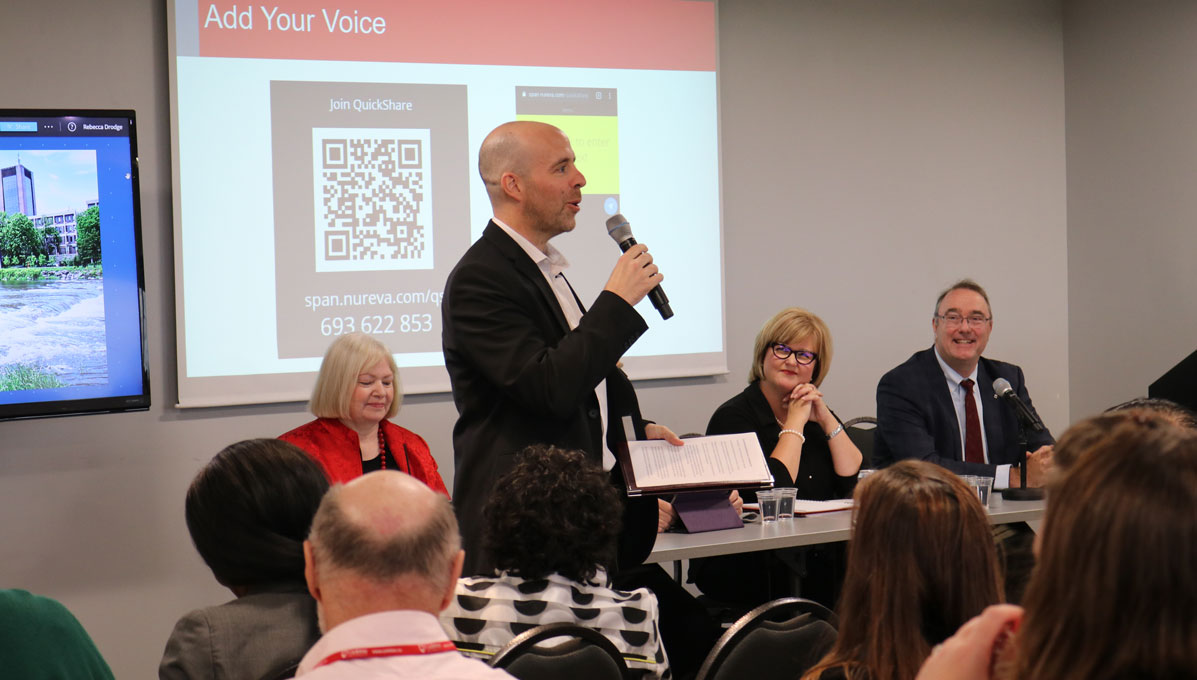
Thinking in Global Terms
“Every university needs to think about everything it does in global terms,” said Paul Davidson, president and CEO of Universities Canada, a membership organization that provides university presidents with a unified voice for higher education, research and innovation.
Since joining Universities Canada in 2009, Davidson has led a team dedicated to advancing higher education, research and innovation for the benefit of Canadians. Prior to this, he was the executive director of World University Service of Canada, a leading international development agency active on 70 Canadian campuses and across 17 countries.
“We have to be global in everything we are thinking and doing. One of the challenges is that we are doing this against an unprecedented backdrop of disruption,” he said, before highlighting some significant issues and trends that the Carleton community will need to consider in the development of its next Strategic Integrated Plan.
Davidson said one important element is the investment in internationalization resources.
“We need to maintain the space for international students on Canadian campuses,” he said. “We need to find ways to make sure that international students are well and fully integrated into campus so that they see themselves as full members of the university community and not as guest students.”
Davidson urged the audience to expand their perspective significantly when thinking about strategic planning.
“If you are building institutions that are going to last, your time frames have to work on different scales,” he said. “We need to raise our sights beyond this quarter, or this government, or this political period that we happen to be in, and remember the enduring values of the university that have seen us live and survive, prosper and contribute since the Middle Ages.”
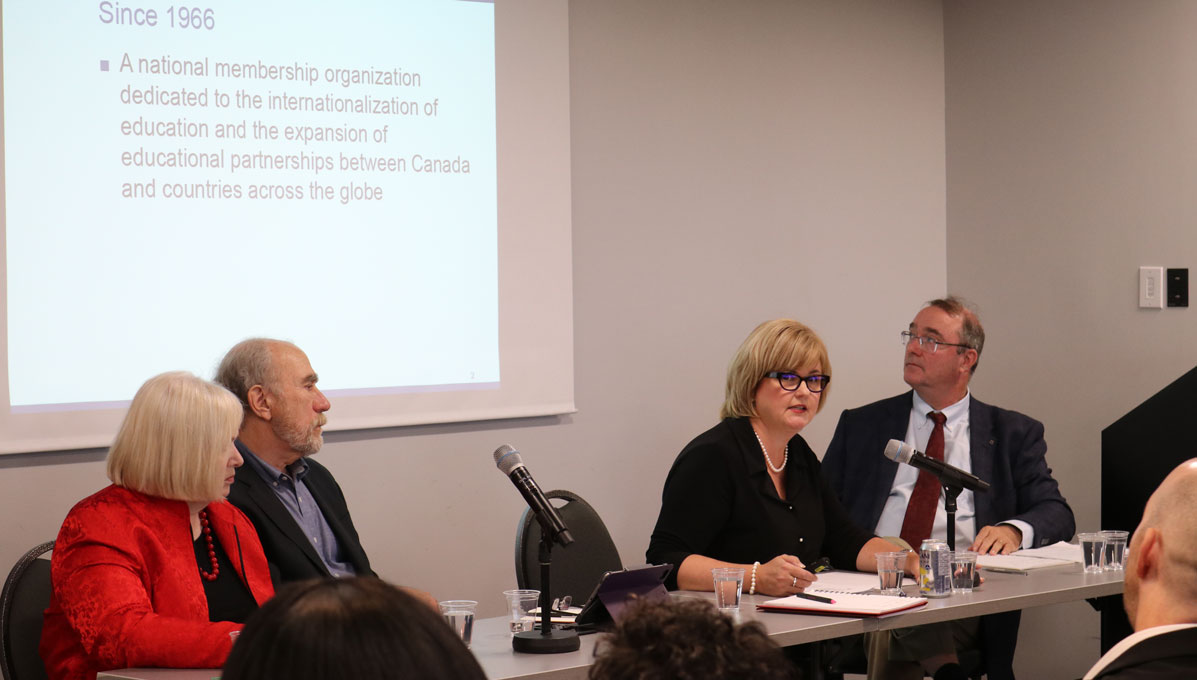
International Engagement and Competition
Karen Dalkie is the vice-president, Development and Partnerships, for the Canadian Bureau for International Education (CBIE), a national membership organization dedicated to internationalizing education and expanding educational partnerships between Canada and other countries.
A proud Carleton alumna, Dalkie joined CBIE in 1998 and has spearheaded and implemented many projects and initiatives around the world over the past 20 years, including providing strategic oversight to the implementation of projects funded by Global Affairs Canada and foreign clients.
While providing an overview of the services and projects that CBIE offers, Dalkie highlighted the Libyan North-American Scholarship Program, International Scholarships Program, and the African Leaders of Tomorrow Scholarship Program, in which Carleton is actively engaged.
In setting the context for her presentation, Dalkie reminded the audience that international students contribute $21.6 billion to Canada’s gross domestic product (GDP).
“We are facing increased global competition,” she said. “There is a need for institutions to enhance their competencies to receive growing numbers of international students on their campuses.”
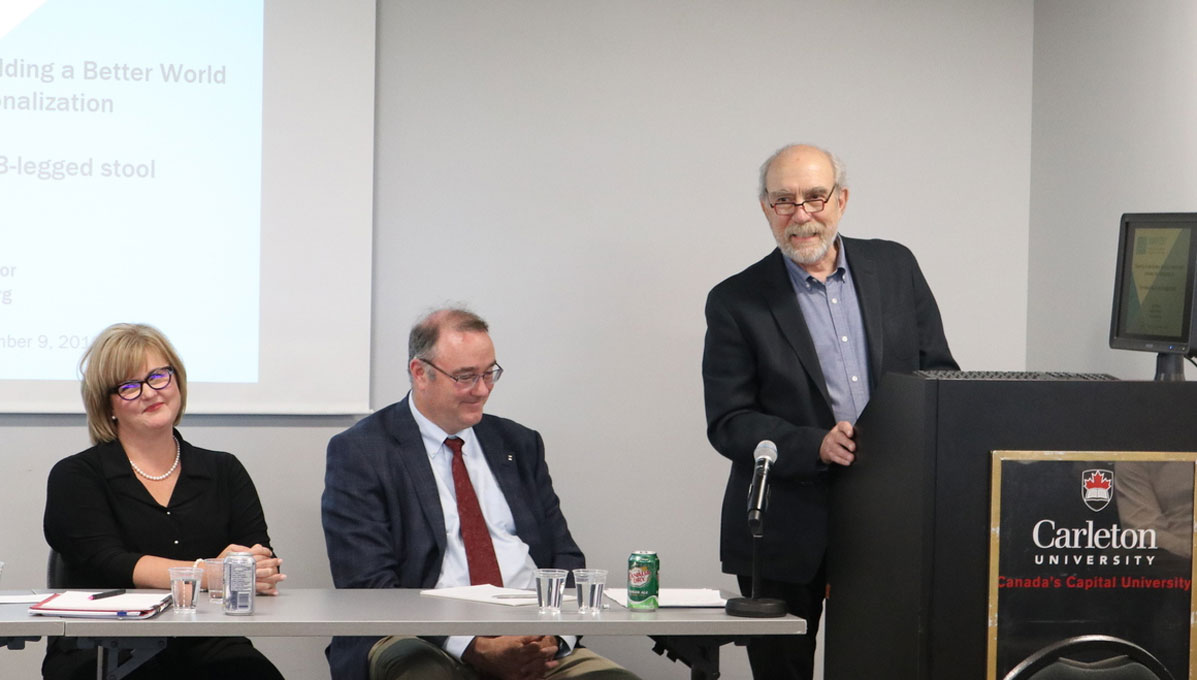
Building a Better World
Greg Moran is the executive director of Academics Without Borders, an organization that helps developing countries improve their universities so they can train their own experts and conduct research to assist in development.
Moran was previously director of Special Projects at the Higher Education Quality Council of Ontario. He also served as provost and chief academic officer of Aga Khan University and was provost at Western University, where he held a faculty appointment from 1977 to 2015.
According to Moran, universities can take their internationalization efforts to new heights by reaching across borders to build a better world.
“We live in an increasingly interconnected world,” he said. “By working with our colleagues and friends in other parts of the world to support their efforts to stabilize their societies and increase their prosperity, we are ultimately doing what’s necessary to preserve our own futures and that of generations to follow.”
Moran said that implemented properly, internationalization strategies can have a global impact.
“Stronger and more effective universities and colleges help build healthier, more prosperous, more just and more stable societies where fewer people are forced to flee as a result of all of the threats that are facing our world in such a tangible and striking way,” he said.
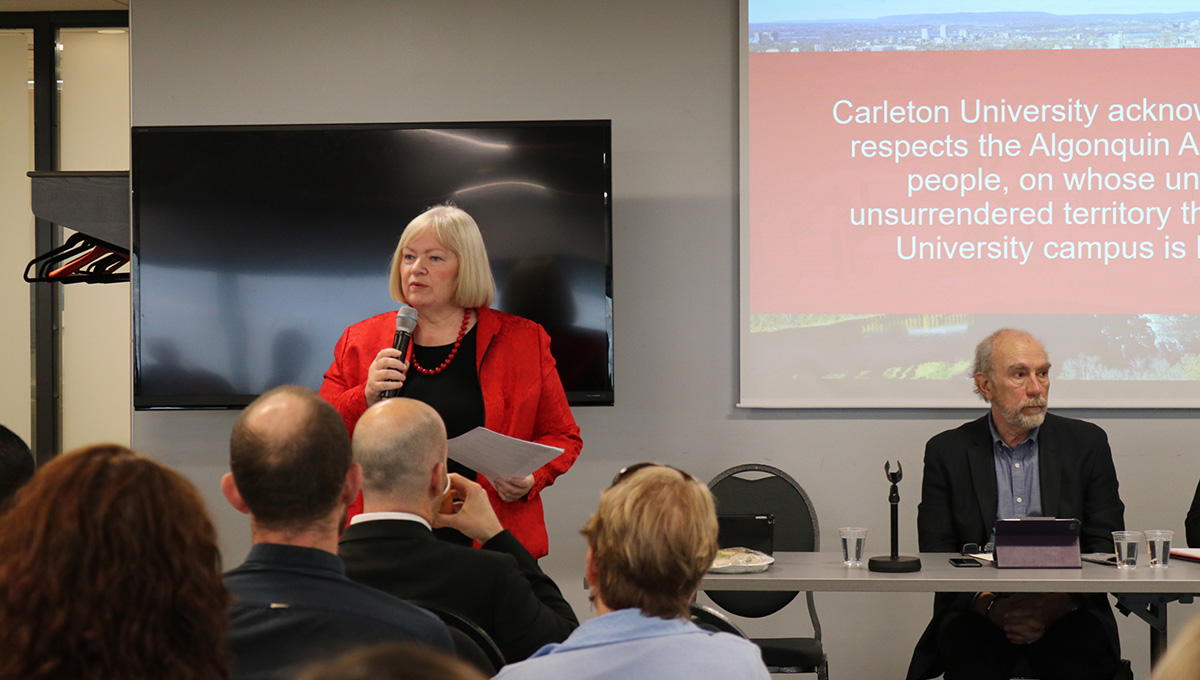
Contributing to the Strategic Planning Process
The Strategic Integrated Planning Task Force is undertaking a broad consultative process that will help to develop the next Strategic Integrated Plan. Members of the Carleton community can register for an upcoming event and send comments to the task force through the SIP website.
Open consultation sessions have been scheduled and are available for registration. Later in the fall, themed consultation sessions will be scheduled based on feedback received through the open consultation events.
The next event in the guest speaker series will focus on the 2019 Reputation Research Report. Online registration is required as space is limited.
Further updates to the strategic planning process will be posted on the Strategic Integrated Plan website.
Wednesday, September 18, 2019 in Strategic Integrated Plan
Share: Twitter, Facebook
